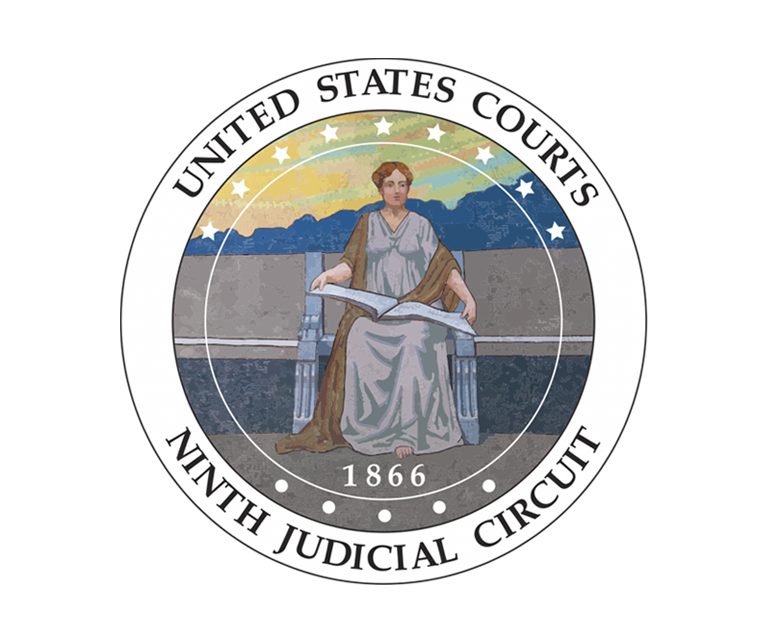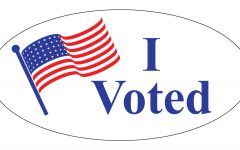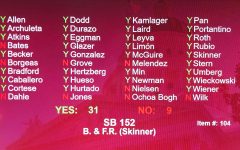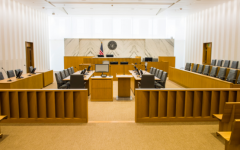
Seal of the US Courts Ninth Judicial Circuit (Photo: U.S. Ninth Circuit official Twitter page)
Lawsuit Challenging Recall Election System In California Rejected By Federal Appellate Court
Appellate Court sides with original District Court ruling
By Evan Symon, December 1, 2022 5:02 pm
A civil rights lawsuit that challenged California’s recall election system, as well the candidate being recalled not being allowed to be in the list of replacement candidates, was rejected by the United States Ninth Circuit Court of Appeals earlier this week.
The case, A.W. Clark v. Shirley Weber, first challenged the recall system in August of 2021. Clark, a Newsom supporter, hoped to block the September 2021 recall election of Governor Gavin Newsom, contending that the system was unfair, as the first vote in a recall asking voters if they want the recall to happen would need only 51% of the vote, while a candidate chosen to replace him in the second vote only needed less than 20% of the vote. Clark also contended that the recall violated his voting rights by not including Newsom on the list of replacement candidates.
The U.S. District Court heard the case in late August of 2021 and quickly ruled in favor of Weber, and in the turn, the state, upholding the recall election and dashing Clark’s attempt at blocking the election. Specifically, District Judge Michael Fitzgerald noted that there is nothing unconstitutional about California’s recall laws and noted that the person being recalled may as well have been beaten in a general election due to a resounding pro-recall vote in the first place.
“There is nothing unconstitutional about placing in one ballot a vote for or against the recall of the governor and then a vote for a replacement candidate,” said Judge Fitzgerald. “Plaintiff plainly feels disgruntled that a replacement candidate with a small plurality might replace a sitting governor who, based on a robust “no” vote, might well have beaten that same replacement candidate in a general election. As that may be, such disgruntlement raises no federal constitutional issues and certainly does not give the federal judiciary the right to halt the mammoth undertaking of this gubernatorial recall election.”
A recall lawsuit
While Newsom later did win and avoided being recalled the next month, Clark filed for an appeal, bringing it to the federal appeals court this year despite legal commentators giving it virtually no chance of it being ruled in his favor and a bill, SCA 6, authored by previously recalled Senator Josh Newman (D-Fullerton), that would have the Lt. Governor replace Governor in the event of a recall instead of a vote on replacement candidates, moving its way through the Assembly and Senate.
However, Clark failed again on Tuesday, with the Appellate Court upholding the District Court’s ruling in a 3-0 decision. They contended that the current recall system does not violate voters rights as the Governor would be ousted by a majority of votes and the replacement candidate getting the most subsequently. Newsom being left off the second question for replacement candidates was also upheld, with the Court citing a 1997 ruling that upheld two-term limits in California.
“California has an important interest in ensuring that the power to recall guaranteed to its voters is effective and does not invite an endless cycle of recall attempts,” wrote Judge Paul Watford in the ruling, writing for the other judges. “The recall system is arguably less burdensome than term limits because it bars an incumbent from running in just one election while term limits sideline a candidate for good.”
While Clark’s side did not give comment following the loss, Attorney General Rob Bonta noted that “All voters in a recall election have the same right to vote on both or either of the questions proposed on a recall election ballot.” Other legal experts concurred with the court and Bonta.
“This is not a strong case at all,” explained Jennifer Sterly, a Los Angeles lawyer who has been a part of legal teams in the past over elections in the state, to the Globe on Thursday. “Nothing constitutional is broken here and no rights are being violated. And Newsom winning despite not being on the second ballot torpedoed his arguments pretty good the second time around.”
As of Thursday, it is currently not known if the suit would be challenged again in a higher court.
- New Report Shows Electric Car Sales Continued to Fall In California In 2024 - February 22, 2025
- LA Mayor Karen Bass Fires LAFD Chief Kristen Crowley, Blaming Her For Mishandling Palisades Fire - February 21, 2025
- Anti-Slavery Constitutional Ballot Amendment for 2026 Bans Involuntary Servitude as Punishment - February 21, 2025





I thought that was weird. Normal free states would recall first, then if successful the lieutenant governor would be in charge until a special election. So if it stays as is, dump the lieutenant guv, and sub it down to Sec ofState.